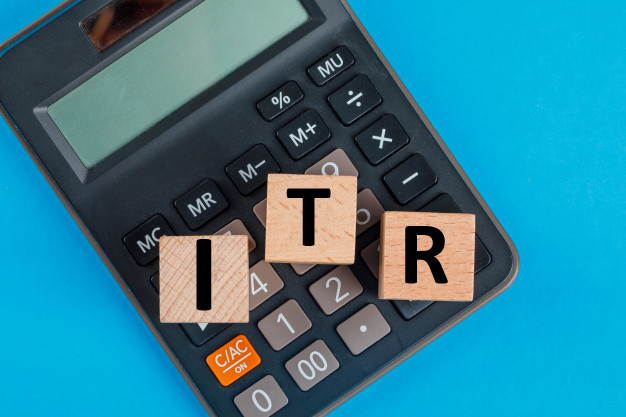- +91 92666 66780
- info@indithinkk.com
ITR not registered yet? Here the results of the expiry of 31 March can be revealed

The Income Tax Authority has the power to make the U / S 144 the best decision assessment of the IT Act; where the taxpayer has failed to furnish the return of its income.
Final assessment year (AY)
which is for AY 2019-20 (financial year (FY) 2018-19); the deadline for filing income tax return (ITR) was extended till September 30, 2020, causing disruption. happened. Countrywide lockout was implemented to test the spread of Novel Coronavirus Kovid-19.
However, for the current assessment year – which is age 2021-22 (FY 2020-21); even for non-audit cases on the due date of filing returns, till January 10, 2021 and February 15, 2021 Was extended to In cases where audit / third party audit was required; the deadline for filing returns remained unchanged.
Therefore, unless extended to March 31, 2021, it will be the last date for filing returns for age 2020-21.
If you have not yet filed your ITR, you will have to do it by the end of March; otherwise you may have to bear the consequences.
“Any person is eligible to file a return of income; but fails to furnish the same for the FY 2019-20 (AY 2020-21) within the due date u / s 139 (1) of the Income Tax Act, 1961. (Hereinafter referred to as ‘IT Act’) can file the said return with an additional interest and late fee within the extended time limit of 31 March 2021. However, if the return of income is not furnished by 31 March 2021, such return will be considered. Time barred and taxpayers will not be able to file tax returns for the said assessment year; as there is no provision for income tax utilities to file time bound returns, ”RSM India founder Dr. Suresh Surana said.
If an assessee has taxable income, but fails to file a return of income; the consequences can be serious, especially if the motive for non-filing is tax evasion.
“If the taxpayer has taxable income and the taxpayer fails to file a return of his income; the provisions enabling the imposition of a fine U / s 270A for tax equal to 50 per cent of the tax are to be saved by the taxpayer. For such non-submission of income tax returns. Further, the Income-tax Authority has the power to initiate the prosecution of the IT Act 276CC in the case of such defaulted taxpayer subject to rigorous imprisonment for such term Which shall not be less than 3 years; but which may extend to two years and with fine.
In addition, if the possibility of tax exceeds Rs. 25,00,000, the failure of non-submission of the return will be detected. The period of imprisonment can be from 6 months to 7 years with no penalty. However, no such prosecution can be initiated where the tax levied can be increased to Rs 10,000, ”said Dr. Surana. .
The Income Tax Authority
“It is pertinent to note that the Income Tax Authority has the power to make the best decision assessment U / s 144 of the IT Act where the taxpayer has failed to furnish the return of its income,” he said.
“However, section 119 (2) (b) confers income tax authority with power to accept any application or claim for any exemption; deduction, refund or any other relief even after the expiry of the period specified under the IT Act. Does. Thus, taxpayers who fail to furnish their return of income for the year 2020-21 by 31 March 2021; after showing sufficient and reasonable reasons for such delay in actual cases of delay; for such delay You can consider applying to the Income Tax Authority. It is, of course, a discretionary power and the grant of such relief may be on a case by case basis, ”Dr. Surana continued.
Apart from the above results
In addition to not furnishing the return within the due date as per U / S 139 (1) of the IT Act; the additional consequences may also apply to the taxpayer whenever he presents the return after receiving the U. 119 / of the IT Act (unless exempted by U / s 119 of the Income Tax Act), as Drs. Listed by Surana, the following includes:
Late filing fee u / s 271F of IT Act is Rs 10,000 for 2020-21 where such return is filed beyond the due date u / s 139 (1) of IT Act. However, if the total income of the taxpayer is up to Rs 5,00,000; then such late fees will be limited to Rs 1,000.
Additional interest u / s 234A of the IT Act; @ 1 percent per month or part of the month will be applicable for the remaining balance of tax.
More importantly, the taxpayer will suffer some deductions and / or losses and will carry forward the loss (other than loss of house property) as a result of filing returns in excess of the stipulated date. IT Act. Therefore, if you have not yet filed ITR; it is better not to wait for the last date or expect a date extension and file the return as soon as possible.
Leave A Comment Cancel Reply
Business
Get In Touch
- Neptune House, 732, Street Number 3, Laxman Vihar Phase 2, Gurugram, Haryana 122006
- info@indithinkk.com
- +91 92666 66780



No Comments on ITR not registered yet? Here the results of the expiry of 31 March can be revealed.